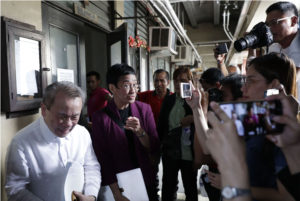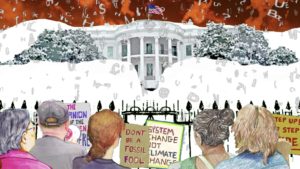|
To see long excerpts from “Hell Before Breakfast” at Google Books, click here.
|
“Hell Before Breakfast: America’s First War Correspondents Making History and Headlines, From the Battlefields of the Civil War to the Outer Reaches of the Ottoman Empire”
A book by Robert H. Patton
Before Twitter, before Skype, before the Internet, before even — imagine really hard now — television, there was still news. And the news had to be reported. In “Hell Before Breakfast,” Robert H. Patton paints a vivid picture of those nearly inconceivable times through the eyes of those who wrote about major historical events.
Patton’s protagonists are a who’s who of 19th- and 20th-century journalism. Among them is William Howard Russell, whom Patton calls the first war correspondent. Russell’s report of the ill-fated British stand at Balaclava during the Crimean War not only made him an international celebrity but also inspired Alfred, Lord Tennyson to write his famous poem “The Charge of the Light Brigade.”
We also meet Frank Millet — painter, writer, friend of Mark Twain — who covered the grueling Russo-Turkish War of 1877-78 only to die on board the Titanic a generation later. His fellow correspondent Januarius MacGahan accomplished almost superhuman feats of persistence and bravery: crossing deserts, chasing armies and perhaps inadvertently abetting the escape of a sultan’s many wives and children in what is now Uzbekistan.
The non-journalists Patton introduces us to are just as colorful. New York Herald owner James Gordon Bennett Jr. was a playboy with a penchant for naked horseriding and outrageous bets that put other people’s lives on the line. Russian Gen. Mikhail Skobelev’s love of “culture, women, and hard partying” belied his “brute efficiency” on the battlefield.
Patton relates events, often in stomach-churning detail, that casual students of history may not be familiar with. The atrocities of the Russo-Turkish conflict are almost unfathomable, and the rise and bloody fall of the Paris Commune in 1871 is not part of the city’s romantic reputation.
Reports of many of these events took weeks, or even months, to reach readers after traveling by horse, boat and train. Powerful writing, though, is timeless. Upon discovering two soldiers at the grave of a fallen comrade, Millet described the scene with painterly skill: “Between them, a long low mound disturbed the rounded outline of the hill, and a rude cross made of branches added its unexpected silhouette to the shapes of the men, seen as irregular masses against the deep crimson of the western sky.” Sometimes vivid writing needs no technology other than words.
Becky Krystal can be reached at [email protected].
©2014, Washington Post Book World Service/Washington Post Writers Group







You need to be a supporter to comment.
There are currently no responses to this article.
Be the first to respond.